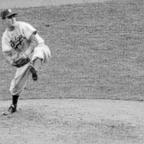The Dark Side of March Madness
March 22, 2006 — -- The Final Four means big money for America's bookmakers. Aside from the Super Bowl, few events attract more betting dollars.
And to those for whom gambling has become an addiction, few times of the year are more painful than March Madness, the thrill-packed tournament to crown the nation's best college basketball team.
Psychiatrists have long-suspected that pathological gambling, like depression and other mental disorders, is, at its roots, genetic. Now a researcher at the University of Iowa has found evidence that gambling runs in families.
Dr. Donald Black, a professor of psychiatry at the school's Roy J. and Lucille A. Carver College of Medicine, led a team that interviewed 31 pathological gamblers and 31 other people who placed occasional bets but did not show any signs of addiction.
Black found that 12 percent of the addicted gamblers had relatives with similar addictions, while only about 3 percent of the nongamblers did.
Black, like other mental health experts, believes an addiction to betting relates closely to other addictive behavior.
"Something is being passed along in these families that increases the person's likelihood of engaging in impulsive and ultimately self-destructive behavior," said Black. "In some persons, it manifests as substance abuse, in others as antisocial behavior, and in others, gambling, and often the three are combined."
Gambling addiction has increased in recent years, probably because it has become easier to make bets, Black said. Gambling sites have proliferated on the Internet, and law enforcement officials say illegal bookmakers have increased in number as well. On top of that, more and more states have allowed casinos. But the number of addicted gamblers is hard to come by because so much betting is done either illegally or informally.
Black has published his findings in the journal Psychiatry Research. He found, perhaps predictably, that addicted gamblers were more likely than those in the control group to be single, divorced or widowed. But he also found that the addicted gamblers he studied tended to have larger extended families --




